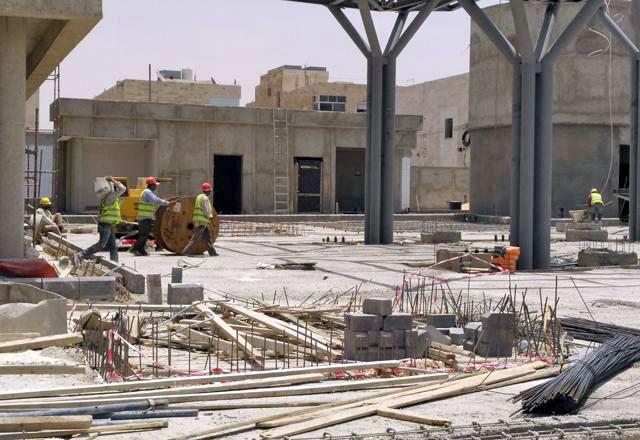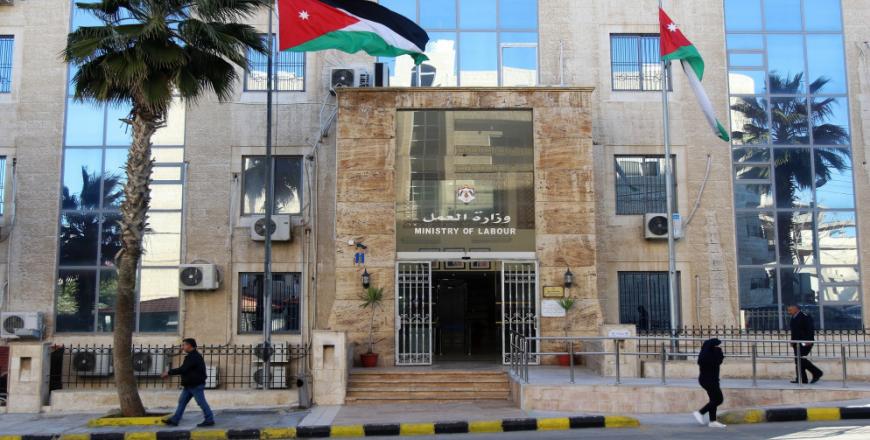You are here
Experts ponder impact of revised work permit fees
By Bahaa Al Deen Al Nawas - Sep 03,2019 - Last updated at Sep 04,2019

The Labour Ministry said new measures aim at regulating the labour sector (JT file photo)
AMMAN — Monday's Cabinet decision to approve the 2019 by-law on work permit fees for non-Jordanians with the aim of addressing the illegal foreign workforce drew varied reactions from experts on Tuesday.
Under the by-law, the work permit fees for various economic sectors and activities have been unified at JD500 as a reform measure in the labour sector, in addition to the issuance of two new kinds of permits.
The first is the daily wage permit (free permit) in the agriculture, construction and loading sectors, in addition to permits for workers with specialised skills, the Jordan News Agency, Petra, reported on Monday.
At the Cabinet meeting, Labour Minister Nidal Bataineh said that in view of the rising number of illegal foreign workers, there had to be reforms in the Jordanian labour market and decisions to resolve existing issues through organising the market and finding new means to encourage Jordanian youth to integrate into the labour market.
In a statement made available to The Jordan Times, the Jordan Labour Watch, affiliated with the Phenix Centre for Economic and Informatics Studies, described the free permits in some sectors as a "positive step in the right direction".
The centre explained that they expect the decision to positively contribute to organising the labour market through increasing the number of legal foreign workers.
Citing official figures, the statement said that there are some 340,000 foreign workers with permits while the number of illegal workers has reached around 600,000.
Nonetheless, the centre believes that for the step to be successful, there need to be follow-up decisions that organise the labour market and foreign workers further to serve the interests of Jordanians and non-Jordanians as well as the business sector, without "scaring off" expats.
In the statement, the centre called for measures to be taken to ensure free permit workers have social security subscriptions, fixed working hours, holidays and days off, all in accordance with Jordanian and international regulations.
The statement also stressed the need to reduce work permit fees, as the by-law requires workers to pay JD1,500 annually in return for a free permit in the agricultural sector, JD2,000 for workers in the construction and loading sectors, and JD2,500 for workers with specialised skills.
For his part, Economist Husam Ayesh told The Jordan Times on Tuesday that the decision might seem to help increase legal non-Jordanian workers as well as to give Jordanians more work opportunities, but "reducing the number of illegal foreign workers might not necessarily mean that Jordanians will want to fill their shoes".
"What is really needed is to revitalise the sectors where workers, Jordanians or non-Jordanians, work, improving them to bring more income for all, attracting local workers who can utilise their skills," Ayesh said.
If a foreign worker in the agriculture sector left because they could not afford the work permit fees, there might be no replacement, damaging the sector further, he noted.
Related Articles
AMMAN — The Cabinet on Monday approved a draft by-law on the permit fees of non-Jordanian workers.
AMMAN — The Prime Ministry recently agreed to permanently reduce the work permit fees for daily (freelance) workers beyond the grace period
AMMAN — Non-Jordanian workers who faced deportation after the end of the grace period to rectify their status are now allowed to receive wor
















